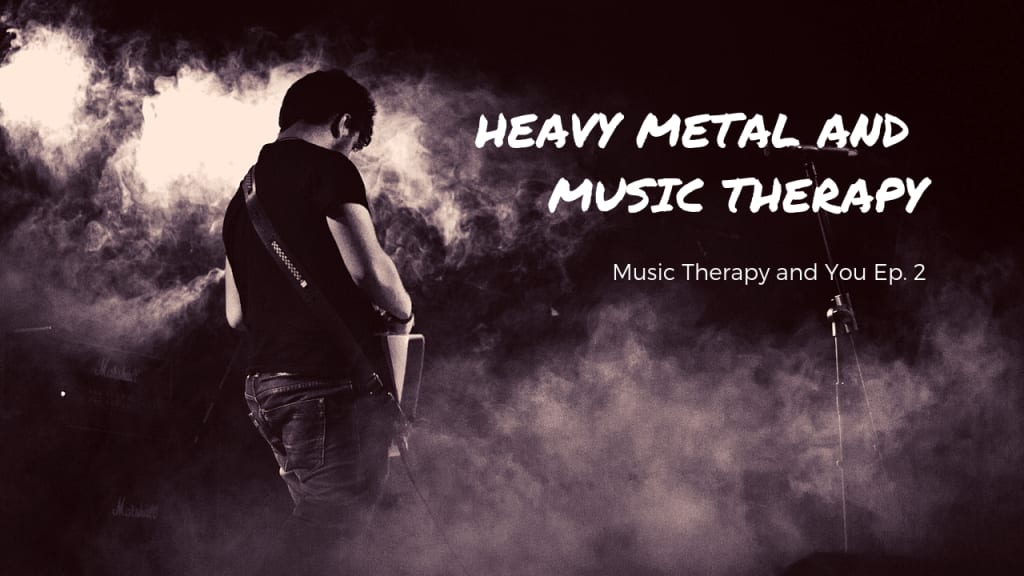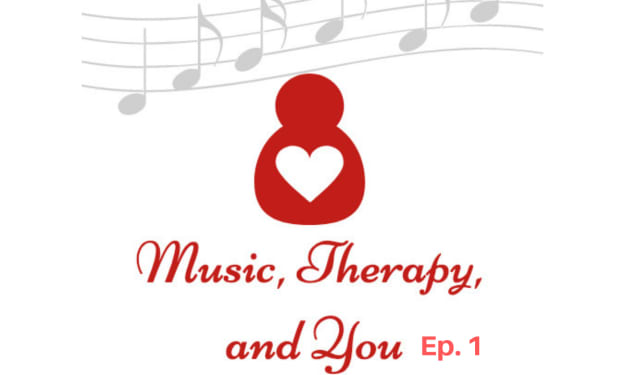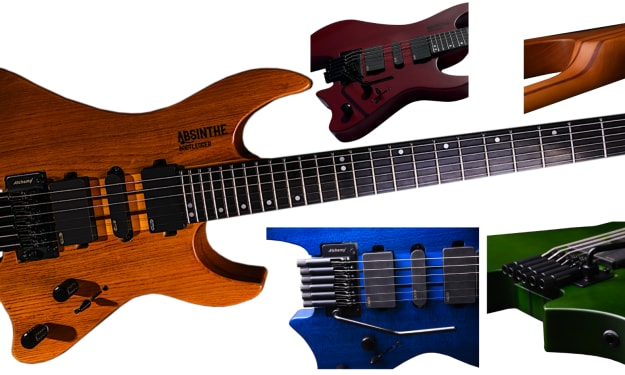Music, Therapy, and You!
Episode 2: Can Heavy Metal be used in Music Therapy?

Hello everyone welcome to chapter two of MT&U! Our topic today: Is heavy metal and what they call “extreme music” just as beneficial (in a music therapy aspect) as something soothing and relaxing, we’re just gonna use classical as our default. But before we begin I just wanna say thank you to everyone who read chapter one! Fun fact: I actually started this endeavor on Youtube, and originally wanted these to be podcast episodes, but school got in the way, and I fell off the wagon. Round two, fight!
So: metalheads? Anyone? If you are, some questions to think about: why do you listen to it? Why would anyone enjoy “extreme music” in all its forms? I started my shift to the dark side in my first years of high school, as most do. I had friends who listened to heavy metal, and they wanted me to like it too. Only thing I'd listen to though was Beethoven. Then, my friends introduced me to symphonic metal, as kind of a gateway drug. And my music world was never the same again.
So my official question: does it help or hinder the millions of teenagers and young adults, hell any age group that listens to this genre, is it doing them any good or just hurting them? And my answer is that it definitely has a foot in both ponds, but I want to talk more about how it can help.
Now we all know about the bad rep listener's of this genre get, about the mosh pits, the mental state everyone thinks we must be in to enjoy that “trash”, the fear that some people have when they see a fan dressed the way they enjoy dressing. Saying it’s “just a phase”. And for this question we need to travel farther down the “extreme hole” than just some alternative boy band. I’m talking Chimera, Asking Alexandria, Suicide Silence. Those kinds of songs to people (myself included) offered something that nothing else in the world could cure. Being able to scream. There were times where all I wanted to do was scream until my lungs gave out. But I couldn’t, because I was always around someone who didn’t know, and couldn’t know, what I was feeling. So those songs, blasting that music in my ears at frequencies that shouldn’t even be legal, give some the only amount of calm and rest that I probably felt I could get being a young teen with a spiraling mental state. It’s like they were screaming for me.
Of course, I can't deny how excited my body gets when they get to shredin' and and the drummer goes nuts. They kick the gain up on their power chords...Ah~
*cough* Hm. Sorry. Where were we?
Now, I’m not here to tell you that instead of dealing with your problems, you should just go blast some Slaughter to Prevail until you’re deaf, but I am here to say there’s a psychology to the phenomena of that type of music being just as healing and potent as Paul Walker’s Lyric for Strings ( a great piece by an African American composer you should go listen to! Beautiful stuff!).
What I am here to tell you is that it can be soothing and even beneficial. There’s actually scientific studies that show for certain people who are already a fan of the genre, it gives us similar positive effects like anyone else listening to their favorites. Just because ours is farther from “normal” and scares some, doesn’t mean it doesn’t make us feel good when we listen to it. What I’m here to suggest, is that if music therapy can exist, then it can exist with any music and any genre.
A study was done by Shafron and Karno (2013) observed the of over 500 university students and their favorite types of music and then divided them into two groups: those who preferred heavy metal and hard rock genres (57%) and the rest. The heavy music fans showed significantly higher symptoms of depression and anxiety than the non-fans; however, there was no difference between the two groups on trait anger. Depression always seems to be the overarching branch that connects us.
To test if the “extreme music” as the study liked to call it, could calm the students down, first they needed to make them mad, so they do. They call them to remember really dark and depressing facts to purposely push their buttons. Now those who listened to their extreme music when angry did not show an increase in heart rate or hostility and irritability. Instead, they showed a decrease that was equivalent to those who sat in silence. The extreme music group’s heart rate stabilized and did not continue to rise, suggesting that the music group was taking the music into consideration because in the silence group, the heart rate reduced completely, returning to baseline. So this suggests to the contrary extreme music causes anger and promotes aggressive behavior.
This result expands on earlier research by done in (2007) that reports personally selected music of any genre is just as relaxing as classical music. Observations on two other positive emotions, active and inspired, also showed that music listening helped participants to feel these positively balanced emotions. As a matter of fact, most participants who listened to their selected extreme music experienced a significant increase in feelings of inspiration. These effects of extreme music on increasing physiological positivity are talked about in other research showing that music can evoke the experience of power – something that happens for songs with and without lyrics.
Related research felt that focusing on another negatively balanced emotion, specifically sadness, might help to shed some light on music and anger processing studies show that people listen to sad music when they are sad in order to improve their mood For instance, Papinczak et al. (2015) showed in both qualitative and quantitative studies with participants aged 15–25 years that they used music to immerse in negative moods such as sadness – a strategy that helped to process their sadness and to feel better. Similarly, a study of 65 adults from five countries found that when they were feeling sad, sad music helped these individuals to connect with their emotions through the music to fully experience sadness and consequently improve their affect
Now of course there are plenty of articles to the contrary of everything we’ve been talking about so far, and I’m not here to say that everything about the genre is great. There’s one specifically one that was done just this past April that talks a lot about manifestations, and this term analogous which if you don’t know is an adjective that means
1. "Comparable in certain respects, typically in a way which makes clearer the nature of the things compared."
Which is basically saying everything in this study is correlation and if you’ve ever taken a psych class you know what that means: Correlation does not equal causation.
In the end, the study shows that listening to music that you enjoy in any capacity helps to reduce your anger and calm you down. That’s just how music works on our brains, because we are such creative creatures. And if your favorite band just happens to be Five Finger Death Punch, then it’s okay. It’s just as soothing to you, as an Aria is to everyone else. And that, is music therapy at its finest.
About the Creator
Ebony Swain
College Student * Musician * Music Therapist in Training * Beginner Music Producer * Mental Health Advocate *Just a girl with a passion for music and powerful conversation.






Comments
There are no comments for this story
Be the first to respond and start the conversation.